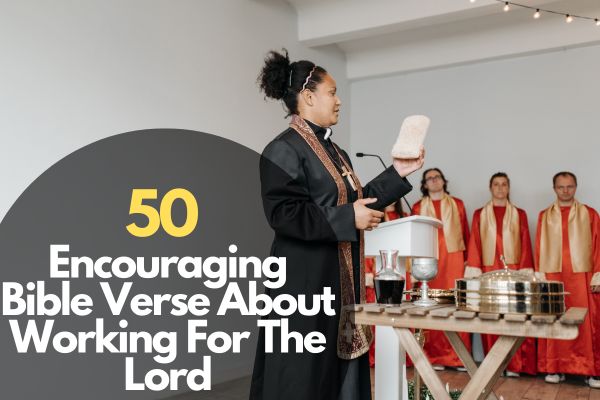In this article, we’ll be looking at the Bible and cryptocurrency. What does the Bible say about cryptocurrency? We’ll also look at how the Bible uses money and how it talks about money in general and then take a brief look at the history of money and see what the Bible says about it.
What does the Bible say about cryptocurrency?
The moral and legal issues surrounding cryptocurrencies are developing along with the fast-expanding cryptocurrency market. While some regard it as a ground-breaking approach to doing business, others think it’s nothing more than a modern-day Ponzi scheme.
Cryptography is used to safeguard transactions and regulate the generation of new units in cryptocurrencies, which are digital or virtual currencies.
In 2009, the first and most well-known cryptocurrency, Bitcoin, was developed. Since its beginnings, cryptocurrencies have been a hot topic, with proponents praising their advantages and critics cautioning about their dangers. What, though, does the Bible say about cryptocurrencies Interestingly, the Bible has ideas that can be applied to cryptocurrencies even though it doesn’t mention them expressly.
Proverbs 6:6 KJV
Go to the ant, thou sluggard; consider her ways, and be wise: Which having no guide, overseer, or ruler, Provideth her meat in the summer, and gathereth her food in the harvest.-
Proverbs 6:6 KJV
for instance, we read: “You slug, go to the ant, think about her ways, and be intelligent!
She prepares her meals in the summer and harvests her supplies in the harvest without the aid of a chief, officer, or ruler.” according to this verse, success depends on collaboration and effort. Additionally, cryptocurrency follows this premise.
Trust and cooperation amongst its users are necessary for Bitcoin or any other cryptocurrency to function. Cryptocurrency and Christianity Some people might be surprised to learn that the Bible speaks about cryptocurrency. But as it turns out, there are a few scriptures that reference it.
For example, in Exodus, there’s a mention of “an ear of corn” and how it can be used as currency. Another reference is in Revelation, where it talks about the “mark of the beast”—which some believe could be a reference to cryptocurrency.
So what does all this mean? Well, from a Christian perspective, it could be seen as a sign that cryptocurrency is here to stay. And as Christians, we should be open to learning about it and using it for the good of others.
What does the Bible say about bitcoin?
There’s been a lot of talks lately about Bitcoin and other cryptocurrencies, and people are wondering what the Bible has to say about them. Some believe that Bitcoin is the currency of the future, while others think it’s a Ponzi scheme.
But what does the Bible actually say about Bitcoin? Not much. In fact, the word “Bitcoin” doesn’t even appear in Scripture. However, that doesn’t mean that we can’t glean some principles from biblical teachings that can help us make a decision about whether or not to invest in cryptocurrencies.
For example, we know that God is a God of order and stability and that He desires us to be wise with our money. We also know that Jesus warned His disciples about being deceived by false prophets. So before investing in Bitcoin or any other cryptocurrency, we need to prayerfully consider whether or not it aligns with God’s will for our lives.
What does cryptocurrency represent?
There’s a lot of debate about what cryptocurrency represents, and people have different interpretations. But from a biblical perspective, there are a few things we can say about it.
For one, cryptocurrency is based on the concept of decentralization, which is something that’s been talked about in the Bible for centuries. In the book of Isaiah, God says, “For my thoughts are not your thoughts, neither are your ways my ways,” and this is a concept that’s been echoed in cryptocurrency.
Another thing to consider is that cryptocurrency is all about giving people control over their money. And this is something that’s also been talked about in the Bible—in the book of Deuteronomy, God says, “I have given you the land.” This speaks to the idea of giving people control over their own lives and their own money.
So from a biblical perspective, it’s clear that cryptocurrency is something worth exploring.
What does Jesus say about money in the Bible?
A medium of exchange is money. It is an agreed-upon asset that can be used to complete a transaction, settle a debt, or make a trade. Different countries will use different exchange methods. Additionally, using money makes it much simpler to obtain what you need.
1 Timothy 6:10 KJV
For the love of money is the root of all evil: which while some coveted after, they have erred from the faith, and pierced themselves through with many sorrows.-
1 Timothy 6:10 KJV
Money is a lifeless thing. It can’t take independent action. It is incapable of both noble deeds and criminal activity. Basically speaking, it’s neutral. Regardless of how many verses that deal with money in the Bible deal, money will only carry out your instructions. However, not all evil stems from money.
Matthew 6:24 KJV
No man can serve two masters: for either he will hate the one, and love the other; or else he will hold to the one, and despise the other. Ye cannot serve God and mammon.-
Matthew 6:24 KJV
Money has the potential to govern our life and even become an idol.
God wants us to live fully, and He is aware that worshiping money will prevent us from doing so. Many things will compete for your love and attention in this world, from the seduction of prosperity to the allure of lust.
But the biggest idol you’ll encounter is money God utilizes money as a tool to aid us in loving and living as Jesus did. No matter how much or how little money you have, God is using your circumstances to work in your life.
He is guiding you to place more faith in him. When it comes to money and the Bible, Jesus has a lot to say. In fact, some of his most famous quotes are about money. For example, he once said, “For where your treasure is, there your heart will be also.”This quote is significant because it shows that Jesus doesn’t just see money as a material thing—he understands that it’s important to us emotionally and spiritually as well. And when we trust in money rather than God, we’re putting our trust in the wrong place.
But Jesus also says positive things about money. In one instance, he says, “Give to the one who asks you, and does not turn away from the one who wants to borrow from you.” In other words, he doesn’t believe in withholding generosity from others.
When it comes to cryptocurrency, it’s important to remember that the Bible is a complex book with many different perspectives. So while it’s certainly possible to find verses that support or condemn cryptocurrency, it’s best not to make any assumptions. Instead, let’s allow the Bible to speak for itself, and see where it leads us.
What does the Bible say about coins?
Numerous coins are mentioned in the Bible, and coin collectors find great appeal in them.
The widow’s mite, the tribute penny, and the thirty pieces of silver are among the specific currencies referenced in the Bible; nevertheless, it is not always feasible to pinpoint the precise currency that was used.
A lepton, the smallest and least valuable currency in use in Judea, was the coin mentioned in the parable of the widow’s mite. When Jesus delivered his well-known “Render unto Caesar” speech, the tribute penny was the coin that was presented to him.
The coin is typically assumed to have been a Roman denarius bearing Tiberius’ head. However, it has been speculated that the coin might have actually been an Antiochan tetradrachm with Augustus’ head and Augustus’ portrait on the reverse or an Augustan denarius with Caius and Lucius’ portrait on the reverse. Mark Antony, Germanicus, and Julius Caesar coins are also possibilities.
A Tyrian shekel is typically assumed to represent the coin in the fish’s jaws stated in Matthew 17. Judas Iscariot betrayed Jesus for thirty pieces of silver, according to the Gospel of Matthew 26:15. On the identity of the coins at issue, bible scholars disagree.
Regarding the identity of the coins used to pay Judas, Donald Wiseman offers two possibilities.
Tetradrachms of Tyre, also known as Tyrian shekels (a little over 1.38 troy ounces), or staters from Antioch, which featured Augustus’ head, could have been the coins in question.
It’s also possible that they were Ptolemaic tetradrachms.
What does the Bible say about money in the last days?
A lot of people are wondering what the Bible says about cryptocurrency. After all, digital currency is a pretty new phenomenon, and it’s hard to know what to make of it.
cryptocurrency is a digital or virtual currency that uses cryptography to secure its transactions and to control the creation of new units.
Some people think that cryptocurrency is a sign of the end times and that it’s prophesied in the Bible. But what does the Bible actually say about money in the last few days?
Well, some experts believe that the Bible speaks about a time when the physical currency will no longer be used and that all financial transactions will be conducted through electronic means. Others believe that the Bible predicts a time when people will trade in special coins known as “tokens.”
But one thing is for sure: the Bible does talk about money, and it’s clear that God wants us to be wise with our finances. So whatever you do, don’t invest your life savings in cryptocurrency without doing your research.
In summary, just as with any new technology, there are a lot of questions about how the Bible speaks to cryptocurrency. But just as with anything else, God’s Word is able to speak to us about this new development.
Here are a few things to think about as you explore how the Bible relates to cryptocurrency:
1. Cryptocurrency is based on trust.
2. Cryptocurrency is an international currency.
3. Cryptocurrency can be used for good or bad.
4. Cryptocurrency is regulated by men, not God.






